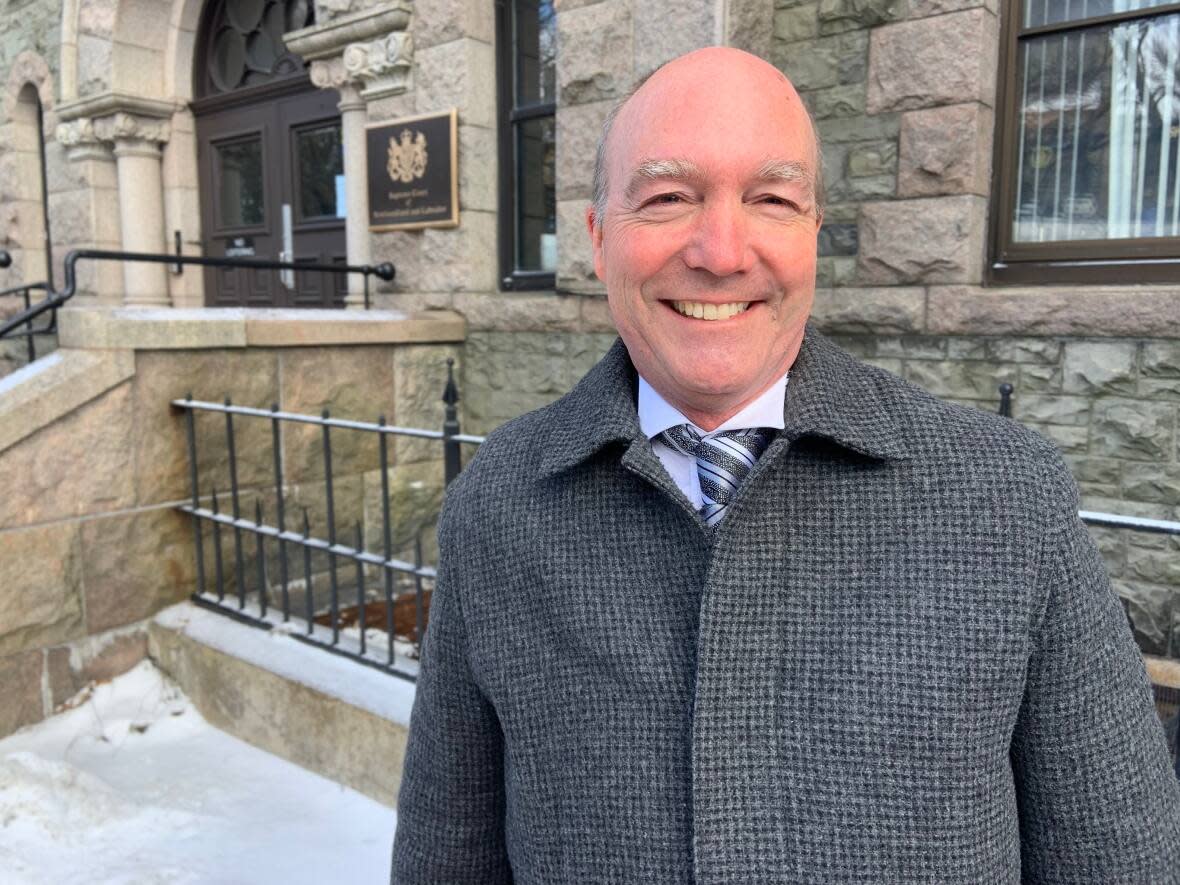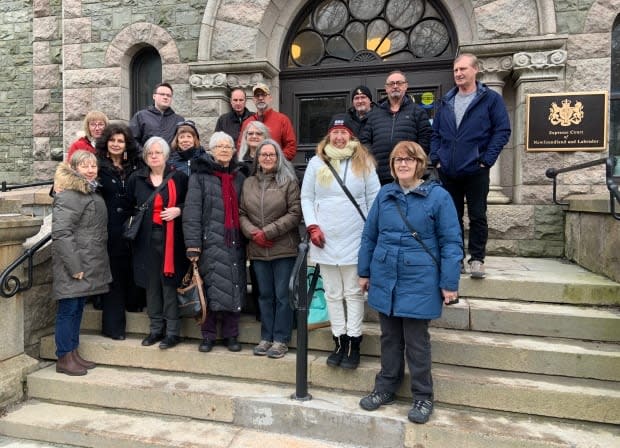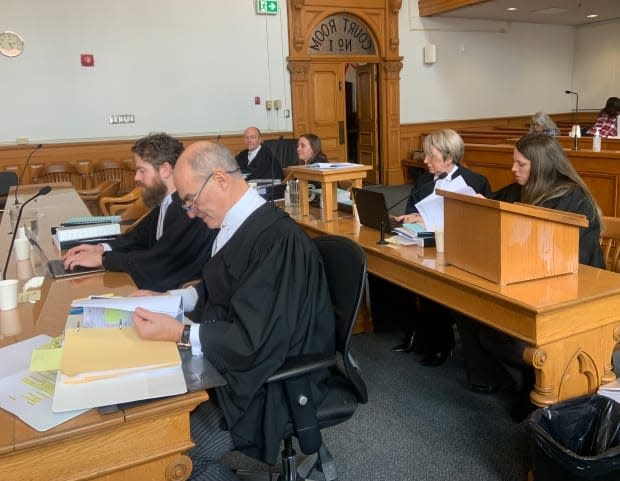Final arguments in Qalipu First Nation membership trial focus on oppression, transparency


The court challenge of the Qalipu First Nation enrolment process concluded Wednesday, with lawyers debating whether the actions of the Federation of Newfoundland Indians constituted membership oppression.
A group called the Friends of Qalipu Advocacy Association is challenging a 2013 supplemental agreement between the federal government and the Federation of Newfoundland Indians, the group that formed Qalipu First Nation.
That agreement changed the enrolment process established in 2008, requiring applicants and Qalipu band members to submit evidence proving they met enrolment criteria through a complex points system.
More than 104,000 people applied to join the band, but in the end only 18,044 applicants were successful. More than 10,000 existing Qalipu band members were kicked out.
After court adjourned, Friends of Qalipu lawyer Keith Morgan said the court action is meant to correct an injustice.
"There's been families that have been fractured, you have twin sisters separated from recognition, you've got communities that have been splintered," he said.
"Ultimately, I think it affects the legitimacy of the Qalipu First Nation band."
Dozens of people have attended the hearings since they began two weeks ago, many hoping for a second chance at membership in Qalipu First Nation. Some were in tears during final arguments on Wednesday.

Both the federal government and the FNI are named in the statement of claim, which asks for the rescission of the 2013 agreement, a re-evaluation of all applications for membership in Qalipu First Nation and a declaration that the agreement constituted membership oppression.
FNI lawyer Philip Buckingham argued the 2013 agreement didn't change the original, 2008 agreement or the membership criteria but instead clarified the existing enrolment process.
Morgan disagreed, calling the enrolment points system "demeaning and improper."
"It's creating a hurdle that's almost impossible to meet," he said.
Bad faith?
Morgan and Buckingham spent hours discussing a complex chain of events that led up to the 2013 supplemental agreement and whether a claim of membership oppression is justified.
Morgan argued the FNI broke its own bylaws when it signed the 2013 agreement with the federal government because it did not consult members.
"It's incumbent on the FNI to go to its membership to get the authority to enter into an agreement," he said.
However, Buckingham said once Qalipu First Nation was officially established, a special resolution dictated that membership in FNI would automatically be reduced to the members of the Qalipu band council, so former members no longer had a say in decisions.
Buckingham said the process leading up to that special resolution and the supplemental agreement was democratic and transparent.
"There is not a tinge, there is not a scintilla of evidence that there was bad faith," he said.
In his rebuttal, Morgan said his clients were unaware of the impact of the actions of the FNI until after the fact.
"To say this is fair, open and transparent? There's nothing further from the truth," he said.
A matter of jurisdiction
Kelly Peck, the lawyer representing the federal government, argued the case is outside the jurisdiction of the provincial Supreme Court.
"This claim is an attack on the process through which the government of Canada recognized the Qalipu Mi'kmaq under the Indian Act," she said.

The Friends of Qalipu made a claim under the provincial Corporations Act, but Peck noted that decisions regarding status under the Indian Act are up to the federal government.
"The decision to establish new Indian bands lies with the governor in council, not with the courts," she said.
"There's a very real disconnect here between the underlying claim and the remedies sought."
However, Morgan said since the plaintiffs are challenging the actions of the FNI — a Newfoundland and Labrador corporation — "jurisdiction is clear."
No timeline for decision
After arguments concluded, Justice Valerie Marshall said she couldn't offer a time frame for her decision.
Regardless of the outcome, all parties have the option to appeal.
"We're hopeful that that won't be necessary," Morgan said. "We hope that we get the right decision and that the ogvernment of Canada and the FNI does the right thing and respects the decision of the court."

 Yahoo Movies
Yahoo Movies 
